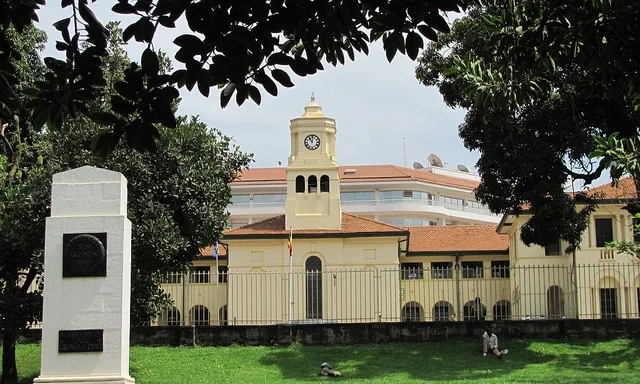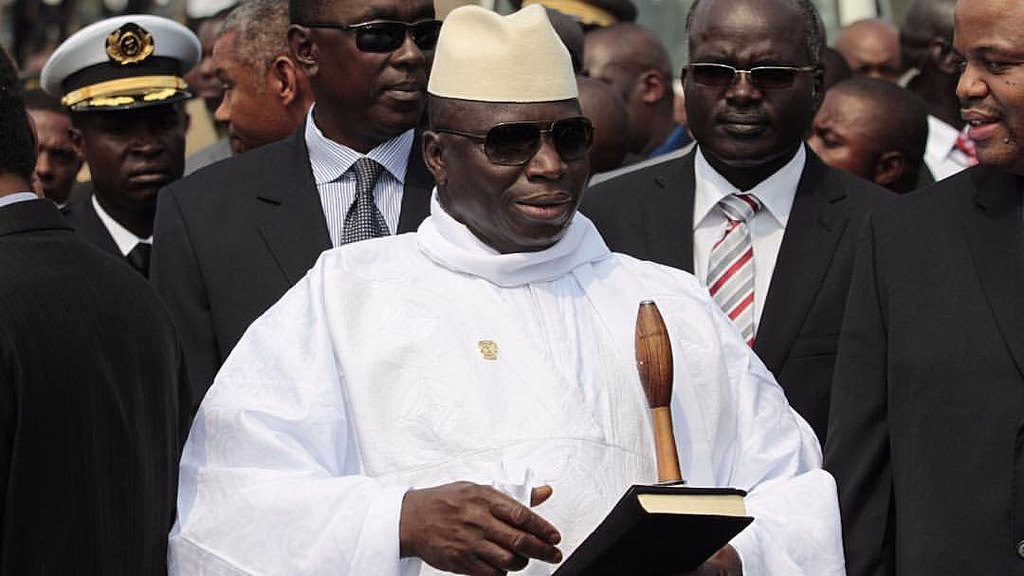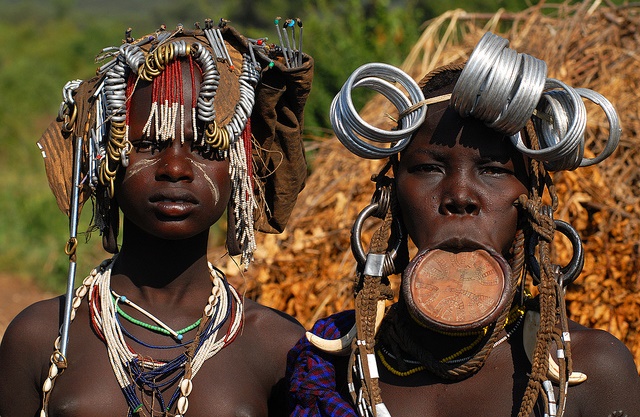“Remember, remember always, that all of us, and you and I especially, are descended from immigrants and revolutionists”. ~ Franklin D. Roosevelt
This phrase by one of the most iconic figures in the history of the American presidency affirms the fact that the process of immigration which has been a part of the human experience since time immemorial, and which continues today, is a crucial part of nation building.
Yet, even with the historical proof that immigration is valuable and necessary, the process of moving to another country to achieve upward mobility is more challenging than it has ever been. This post does not seek to address the issue of 'legal' versus 'illegal' immigration, but the simple fact that in all of the contention people have forgotten their own origins as they lay claim to lands in which they were once strangers.
Society, economies, and global relations are an integral component of a robust immigrant population, and for the world to continue walking on the right path or precisely on a path of continued success owing in large part to the efforts of immigrants and their descendants; countries need to refocus their immigration policies to streamline and provide greater avenues for legalizing migrants, versus an approach that borders on xenophobia.
Some of the most vociferous complaints lodge against immigrants is that they will become a drain on society because they are poorly educated and lack skills required in this technological era. What has been forgotten is that the lack of education or skill does not constitute a high-probability of failure. Many titans of industry arrived on foreign shores with little more than the clothes on their backs, and a primary school education to boot.
These migrants who shuffled from place-to-place in the earlier centuries were not afraid to wager on the future with their hard work, dreams, and determination to rise above their humble origins, thus laying a strong foundation for future generations to build upon. This is not to say that there aren't many people who seek to gain illegal entry to a country for nefarious intent, but the majority of immigrant expats are law abiding citizens.
Immigration: Historical Significance
If one were to turn the pages of history, it can be seen that immigration activity started in the United States during the colonial era, and for the first part of the 19th century the country experienced unprecedented rates of immigration during the period between the 1880s to the 1920s. According to the History Channel in an article about U.S. Immigration Before 1965, immigrants were divided into two lots on the basis of their motive behind their desire to immigrate; the first group entered America to look for better economic opportunities, while the other group which mainly constituted pilgrims, moved to America in search of religious freedom.
Only in 1965 did America formulate immigration laws which subsequently paved the way for Asia and Latin American laborers to immigrate. Prior to the codification of immigration legislation a Quota System was used, but it clearly favored laborers of European descent. This inherent inequity in the system has led to persistent accusations of racism, while the other side claims justification for this imbalance with specious diatribe and fear mongering.
Immigration: Different Nation, Different Facets
Since time immemorial, the activity of moving from one place to another for work, money or religious purposes has been prevalent. These globe trotters have been called many names in different nations; ‘Nomads’, ‘Wetbacks’, ‘Banjaras’, Pikey, or Gypsies, but these derogatory labels sought to diminish migrants as human beings and malign their true intent, which has always been to search for better life in a better place. Soon, social concerns, religious constraints, and a clash of cultures served to ignite anti-migration activity.
In response to the demands made by the citizens already inhabiting various countries legally or by birth, their elected representatives institute tougher immigration laws to level the playing field, and reduce the appearance of bias and negativity. But, how many succeeded and how many failed? What were the hurdles?
The Current Story of ‘Sweet & Sour’ Experiences
Migration activity has become a trend nowadays as individuals are feeling the need to work and settle down in countries with good economic conditions and standard of living. There are favorable nations for them and then on the other side there are nations that have risen from the ashes and have achieved an enviable stature, yet reject immigrants because they do not want the country to experience a reduction in standards of living because too many migrants "may" require social services support at the tax payers' expense.
The positive gains made in immigration policy by many nations, has suffered blows in recent years. In 2012, the Global Post published an article that listed the top 5 nations (Latvia, Japan, Thailand, UAE, and Australia) with the world's worst immigration policies. Additional research and rankings of countries with similar labor abuses was done by the Human Rights Watch and Foreign Policy groups, and these studies confirmed and expounded upon the dangers faced by migrants seeking a better life in other countries.
Several of these countries on the lists are faring well both economically and socially, and their resistance to immigration supports the assertion that they view immigrants as a nuisance and a drain. The report also revealed that each of these countries had severe shortcomings in their employment laws, practiced unfair and punitive behavior toward immigrants, especially in preventing immigrants from joining or forming labor unions which may have providing them with basic workers' rights and additional protections.
1 Next Page » 2
Published: 25 July 2014 (Page 2 of 2)
‘The Wounds Washed & Bandaged’
The fact cannot be ignored that there are several nations, predominantly Asia and Arab, that are thriving because of the high rate of immigration, lax or none -existent worker's rights, and the subsequent benefit derived from these laborers that encourages foreign investments due to low wages.
Though this is still the prevailing model, many countries with stable economies that are flourishing, have begun to roll-out initiatives that seek to align the disparity between the benefits realized from these migrant workers versus their treatment and status..
Though identified in the Global Post, these 5 countries are definitely guilty of harsh anti-immigration policies, but there are many more socially restrictive nations that refuse to even let expatriates reach their shores, as has been reported these past few weeks in several tragedies where immigrants were wounded, drowned, or killed in open waters.
One incident occurred off of the coast of Italy where 60 people were killed trying to escape suffocation in a poorly ventilated and over crowded below deck area of the ship. Another ongoing concern is how Australia is currently handling immigrants seeking asylum. Instead of allowing them to plead their case on shore, immigrants are stopped at sea and sent back without any regard to potential persecution they may face as a result. Amongst the 5 countries listed above, one Asian and one Middle East country have begun to re-addressed their immigration laws to make them more equitable and as a result have begun to frame new laws and regulations.
United Arab Emirates (UAE)
Recently, UAE has emerged as one of the favorite destinations for immigrants. Expatriates from different nations who are seeking to expand their professional horizons are seeking career opportunities in the UAE. Job seekers with technical skills can anticipate high per capita income, easy home loans and a vibrant lifestyle. But, this is a relatively new but positive turn of events, especially since the UAE made the 2012 list of countries with the worst immigration policies.
Now, 2-years later, many Emirate-level governments have taken steps to strengthen the rights and protection of migrant workers. With new strategic direction the federation has begun to focus on labor issues and legislating governmental bodies to arbitrate between the workers and employers, a mutually beneficial resolution of any immigration issues. The country has reviewed and revised some laws, as well as its bilateral agreements with the countries from which many of the migrant laborers have originated for the past several years.
One such noteworthy amendment legislating greater protection in the interests of workers who were not covered under Wage Protection System (WPS). For this, the UAE government did following:
In 2012, the UAE Federal National Council called for legislation for addressing the protection of domestic workers' rights.
Later in 2013, the UAE government revised a federal law to safeguard victims of human trafficking.
There were initiatives and training programs developed to help custom and immigration officers to identify and targeted those who may be guilty of tafficking.
This may not seem like much, but these changes are substantial when one considers that the UAE based upon the 2012 report, gave the appearance of such a lack of interests in the rights of migrant workers, that laws and regulations did not even exists.
Japan
It is said that Tokyo’s government intended to pay the immigrants to leave the country as soon as possible. Sounds weird and disheartening, but it’s true. Similar anti-immigrant action is being taken in both the United States and Australia where asylum seekers and immigrants are being treated inhumanely and with little compassion or any consideration of extenuating circumstances.
However, as with UAE, Japan has realized some positive reversals in its heretofore inhospitable immigration policies.
The Japanese government has introduced a point system that makes migration protocols easier for workers conducting one of three activities: academic research, specialized technical work or business management.
New Preferential Treatment System that allows a foreign professional to work in a number of fields as long as they possess the requisite education or business acumen and/or capital. Similar to the US H1B visa which is a non-immigrant visa that allows US companies to employ foreign workers in specialty occupations that require theoretical or technical expertise in specialized fields such as in architecture, engineering, mathematics, science, and medicine.
Clauses that will allow families of professionals to enjoy many of the same benefits of citizens.
Similar amendments are in progress in the 3 remaining countries on the list, but immigration reform in these countries has not progressed enough to demonstrate outward manifestation, nor is the process transparent enough for us to gain additional insight.
The Final Verdict
The countries that have been facing issues pertaining to harsh anti-immigration laws now recognize that their heinous treatment of foreign workers will no longer go unnoticed and in fact is being classified as a human rights violation. It is easy to malign countries with record of various human rights abuses; however, it is more reprehensible for countries with robust economies and strong human rights protections to deny the benefits that have been received from immigraant or 'undocumented' laborers. To adopt such a hypocritical and uncompromising stance on immigration will only hurt the economic ecosystem in the long-term.
One could be kind and say that the stance they have adopted is because they haven't realized the true worth of these migrants and the advantages they bring. But, more likely the exact opposite and that these governments are keenly aware of the benefits derived, but because this population of migrant workers is vulnerable and have the most to lose, many laborers find themselves in the untenable position of being regularly abused and taken advantaged.
This is a highly charged issue clearly demands greater awareness and compassion, as well as a desire to accept people from different backgrounds and religious beliefs into their midst. Once this has been accomplished, immigration laws will hopefully become merely written words on a piece of paper, because policy will then be driven less by the letter of the law, but the fulfillment of the original framework that provided avenues for people to improve their lot in life while bring great benefit to their adopted country.
Return to Page 1 »
Follow Vinita on Twitter Twitter: @nahmias_report Middle East Correspondent: @vinita1204
Related articles
































